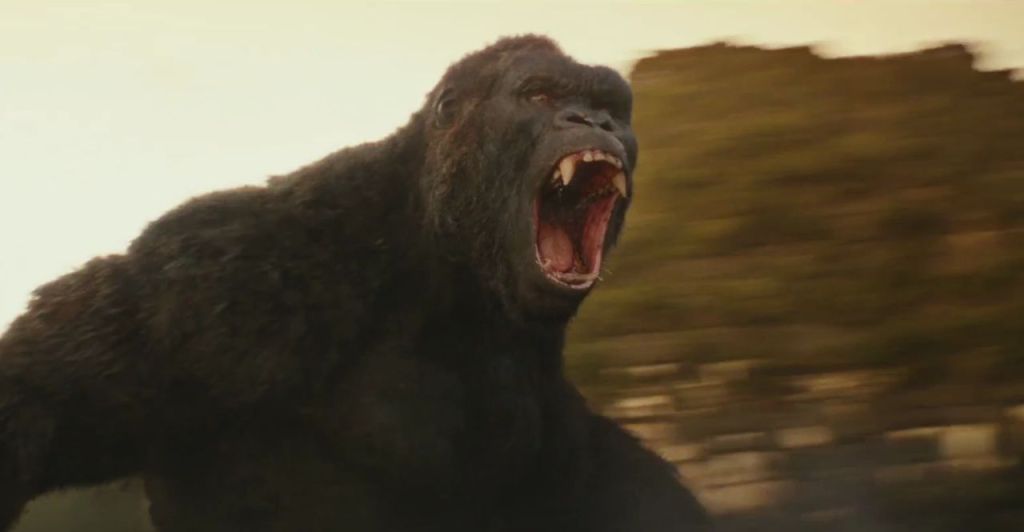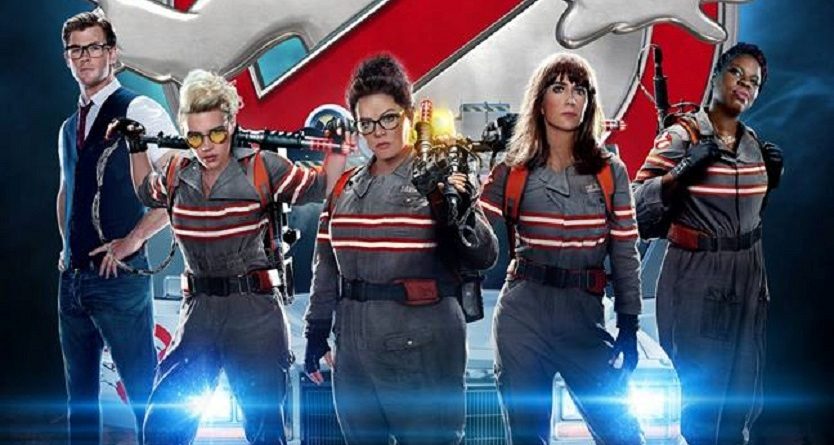Here's something you probably never noticed (sarcasm): Reboots, remakes, and adaptations of popular mediums are EVERYWHERE! If you were to name every blockbuster coming out every year for at least the past ten years, chances are 90% of them are either reboots of a previous film franchise, whether it's a long-awaited sequel or a complete re-vamping of a previously popular film series, remakes of old classics, or an adaptation of a book, video game, comic book, or event that has had plenty of attention in the past. Heck, this month alone holds the third Wolverine movie (not to mention, the tenth X-Men movie), a reboot of King Kong, a live-action adaptation of Disney's Beauty and the Beast, and a Power Rangers reboot!
Many people lash out over the fact that Hollywood is utilizing old ideas rather than coming up with new ones. Me personally? I've more or less accepted the fact. Hollywood needs a good, economical way to bring audiences in, and typically, nostalgia and/or familiarity play a big part of their game plan. Sometimes, that just means relying on a gigantic name to bring audiences in, whether it's an actor like Leo DiCaprio or a well-known director like Christopher Nolan, but not every Hollywood name that has proven to be talented can be big enough to bring audiences in by itself, so they have to rely on something most adult audiences grew up with and are familiar with, which Doug Walker explains well in this video.
With all that in mind, perhaps the question shouldn't be why Hollywood makes these (because we all know why) or whether or not they should (because we know they're going to regardless), but rather.... How can they do it RIGHT?
After all, if people are truly frustrated with Hollywood rebooting franchises, why do they keep making money? Star Wars Episode VII: The Force Awakens currently holds the rank of being (before inflation) the third highest grossing movie of all time, followed closely by Jurassic World, The Avengers, and the seventh.... SEVENTH Fast and Furious movie, among others. So, what is it about these movies that pulls audiences in that something like Paul Feig's Ghostbusters or Star Trek Beyond doesn't? Not that the latter films did terrible, they just didn't justify for how much the studios put into them.
In my perspective, there are two major components that Hollywood needs to understand in order to get these reboots right.
1.Understanding what made the original so great to begin with
Let's face it: You don't get mad when Hollywood reboots a franchise you love; you get mad when they reboot it in a way that doesn't feel right for the franchise. That's why so many people lash out over horror movies getting either remakes or long-awaited sequels, because horror films are so cheap to make that these days, just about every director does them, directors that lack the careful attention to creepy details that John Carpenter and Wes Craven put into their genre-defining classics. They knew that horror movies need to keep audiences at the edge of their seats, and you can't do that when you stick horror films such as the most recent ones to the same boring formula that we've seen before. That's why so many audiences get angry when something like Friday the 13th or Nightmare on Elm Street gets remade with that same tired formula and that same cheap, half-hearted filmmaking.
But this doesn't just apply to the horror genre. Paul Feig's Ghostbusters reboot fell into this trap as well. Feig admitted in an interview that he didn't fully understand how much the original Ghostbusters meant to many people; all he saw was a funny comedy, hence that's what he attempted to create. But for many people, the original Ghostbusters weren't just funny comedians doing their funny comedic things; they were heroes to them. Hence a better direction for a Ghostbusters reboot probably would have been more of a stylized action comedy rather than the improvised talking comedy that we got.
On the flip side of that, J.J. Abrams grew up with Star Wars and was completely on-board for bringing the long-awaited Episode VII to life. He understood that what made the series so great to begin with was the characters, hence not only did he work hard to properly represent the old characters like Han, Leia, and yes, even Luke Skywalker, but he delivered a cast of new characters that managed to ignite a new flame for the franchise. Now, not only did people love the film, but they're looking forward to the next one.
This also fits in with adaptations. Marvel movies, for the longest time, have been misunderstood with third-party studios (particularly Fox, but also more recently, Sony) and have fallen into several traps with trying too hard to modernize the source material. That's not to say that doing direct, line-for-line adaptations of comic books would do much better; they certainly have some silly, over-the-top, weird elements. However, there are certain elements that connected with the readers to begin with, and thus, that's what you need to bring in in order to make your film work for audiences. Yet, for the longest time, third-party studios took too much out of the material to make way for some modernization, and, let's be honest, the Marvel films really only started to get good when they started producing the films themselves.
But what good is recreating a classic film franchise if it doesn't fit into the modern age?
2.Knowing how to change things up for the modern age
The original Star Trek worked better in the 60s and 70s than it does now, so when the time came for a reboot in 2009, many changes were made to attract modern audiences. (I myself became a fan through the reboot before I saw any of the original material.) The characters were more over-the-top, the effects were flashier than usual, and the plot was simplified to a certain degree. The film was an enormous hit, but there was a lot of backlash from long-time fans (especially after Star Trek Into Darkness) saying that it departed too far away from the original material. So, for Star Trek Beyond, they created a film closer to the original material, not having as many flashy effects, concentrating more on ideas, and rather than relying on a big "mystery" reveal (sarcasm), they just told a straight-up Star Trek story. While the film was more appreciated by long-time fans (see here), the film didn't connect too well with modern audiences and failed to break even.
Not that the original Star Trek films don't hold up or that they don't have good stories. If anything, Star Trek Into Darkness, in my opinion, changed things up a little too much in the story for the sake of trying to attract audiences. But anybody who lashes out on a film for being too different from what worked in the past needs to understand that we live in a new day and age, and if an old franchise is to work in films today, changes need to be made.
So, is it possible to apply new craft to an old franchise and still remain faithful to the original series?
Yes. Yes it is.
The idea is to understand what made the original great; not any specific symbols, not any specific lines, and not any specific actors, but rather specific ACTIONS that the director did to create a great project. George Miller returning to the helm to create Mad Max after twenty years or so could easily have been a George Lucas move, but he understood that it was exhilarating action and a powerhouse lead that made Road Warrior so great, so on top of taking advantage of our new abilities with action flicks nowadays, he recast the lead because he knew that Mel Gibson wouldn't be able to play the role, not just because of his infamous controversy, but also because he would have been too dry and too out of shape to do the role. (TAKE A FEW NOTES, HARRISON FORD!)
Now, does that officially mean that every franchise should be rebooted and that every recreation that has come out is justified? Yes and no.
Know what to reboot and how to reboot it
Let me be frank here: There are way too many live-action recreations of animated franchises out there; Garfield, Scooby-Doo, Alvin and the Chipmunks, freakin Smurfs.... Earlier this week, I saw and reviewed Disney's live-action reboot of Beauty and the Beast where I mentioned that live-action and animation are two completely different mediums and that transitioning from one to the other can have some major faults. Animation has a lot of potential for creativity and energy behind it, and you don't have that same level of creativity or energy in the live-action realm. Now, would I like to see a new version of Beauty and the Beast? Sure; they've done that for Peter Pan and Alice in Wonderland, so why not? I don't know if it would be as good as the original Disney version, but a new take on an old tale is always welcome. Part of the problem was that the new version was trying too hard to be the original Disney classic, and that ended up backfiring.
Another instance of this is M. Night Shyamalan's The Last Airbender. Nickelodeon's original series was perfectly paced, perfectly developed, and perfectly executed in just about every way. There might have been a few filler episodes, sure, but for the most part, the flow of the story was fluent. Now, was a reboot or an adaptation inevitable? Perhaps, but the way that the studio and director went about it didn't work out for a second. Not only is the design and color scheme very flat and joyless compared to the artistic animation design from the original, but they tried to cram an entire season of a show into a 90-minute movie, and the result was rushed exposition, a severe lack of character development, and some plot and location changes that boggled the heads of audiences, regardless of their familiarity with the series or not.
Everything is to be rebooted at some point, but the trick is to know how, when, and who to get. Audiences won't connect with a director recreating something that he/she doesn't hold close to them even if audiences do. Audiences are quickly picking up on the instances when a reboot feels out of place, so familiarity alone isn't going to grab them anymore.
So, get to work, Hollywood, and do your job well!












No comments:
Post a Comment